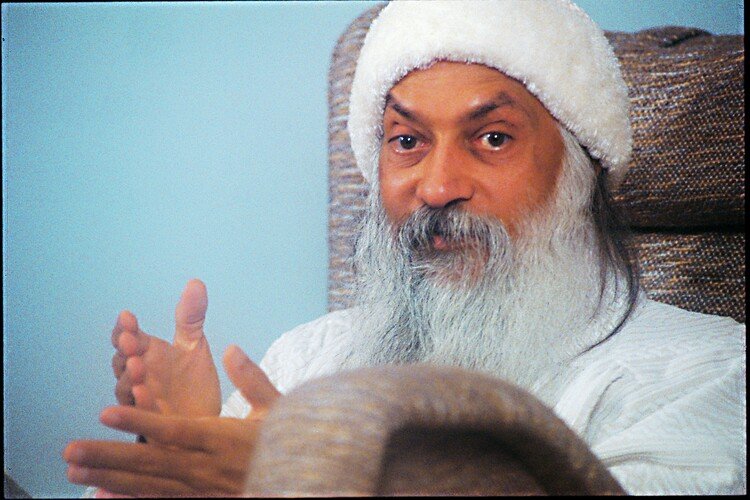Osho Spiritual Freedom and Self-Awareness
Osho, a revolutionary spiritual teacher, left a lasting impact on how we understand freedom and self-awareness.
His teachings weren’t about following rules or traditions.
Instead, they focused on breaking free from societal conditioning and discovering your true self.
Let’s explore Osho’s transformative lessons and how they guide us toward spiritual freedom and deeper self-awareness.
1. Who Was Osho?
Osho, born as Rajneesh, was a spiritual rebel. He challenged norms and embraced individuality.
Unlike traditional gurus, Osho encouraged questioning everything, even his teachings.
He believed true wisdom comes from personal experience, not blind faith.
People often misunderstood him because he pushed boundaries.
But that’s exactly what made his lessons so powerful.

2. What Is Spiritual Freedom?
For Osho, spiritual freedom means breaking free from limitations.
It’s about living authentically and shedding society’s expectations.
He believed that freedom starts within.
You can’t rely on others to set you free.
Only you can do that.
Spiritual freedom isn’t about avoiding responsibilities.
Instead, it’s about embracing life fully and without fear.
3. How Self-Awareness Leads to Freedom
Osho taught that self-awareness is the key to spiritual freedom.
You can’t be free if you don’t know yourself.
He encouraged practices like meditation and mindfulness to deepen self-awareness.
These practices help you observe your thoughts and emotions without judgment.
When you know yourself, you stop living for others’ approval.
You start living for your own truth.
4. The Power of Meditation
Meditation was central to Osho’s teachings.
He believed it’s the ultimate tool for self-awareness and inner freedom.
Unlike traditional meditation methods, Osho introduced dynamic techniques.
These involved movement, breathwork, and even dancing to release suppressed emotions.
Key Lessons on Meditation:
– Start Where You Are: Osho said anyone can meditate, no matter their experience level.
– Let Go of Expectations: Don’t aim for perfection. Meditation is about observing, not controlling.
– Make It a Habit: Consistency matters. Even 10 minutes a day can change your mindset.
Meditation, according to Osho, isn’t about escaping life. It’s about embracing it with clarity and awareness.
5. Breaking Free from Conditioning
Osho often spoke about the dangers of societal conditioning.
He believed it keeps us trapped in fear and conformity.
From childhood, we’re told what to think, how to act, and what’s “right.”
This conditioning shapes our identity, often leaving us disconnected from our true selves.
How to Break Free:
– Question Everything: Ask yourself why you believe what you believe. Is it truly yours or inherited?
– Challenge Norms: Don’t fear standing out. Growth happens when you step out of your comfort zone.
– Listen to Your Inner Voice: Tune into what feels authentic to you, not what others expect.
Breaking free isn’t easy, but it’s necessary for spiritual growth.
6. Embracing Love Without Attachment
Osho’s views on love were groundbreaking.
He believed in love that’s free from attachment and control.
He said love should be a celebration, not a chain.
When you love freely, you let the other person grow.
Lessons on Love and Freedom:
– Let Go of Possessiveness: Real love doesn’t try to own or limit. It respects individuality.
– Focus on Giving: Love thrives when it’s selfless. Don’t focus on what you get in return.
– Stay Present: Love exists in the now. Stop worrying about the past or future.
Osho’s take on love challenges traditional ideas, but it offers a path to deeper, more fulfilling connections.
7. Living in the Present Moment
Osho emphasized living in the present.
He taught that the past is gone, and the future is uncertain.
Focusing on the now allows you to experience life fully.
It frees you from regret and anxiety.
Practical Steps to Live in the Present:
– Practice Mindfulness: Pay attention to your breath, surroundings, and actions.
– Let Go of Multitasking: Focus on one thing at a time. It increases awareness and joy.
– Forgive and Release: Holding onto the past weighs you down. Let it go to move forward.
Living in the present takes practice, but it’s the gateway to true freedom.
8. Courage: The Heart of Spiritual Growth
Osho believed courage is essential for spiritual freedom.
It takes bravery to challenge norms and follow your truth.
He taught that fear often holds us back.
But facing fear head-on helps us grow.
How to Cultivate Courage:
– Take Small Risks: Start with small steps outside your comfort zone.
– Accept Fear: Osho said fear isn’t the enemy. It’s a sign you’re growing.
– Act Despite Doubt: Courage doesn’t mean you’re fearless. It means you act anyway.
Courage opens the door to a life lived authentically and freely.
9. Letting Go of the Ego
Osho viewed the ego as a barrier to self-awareness.
He taught that the ego creates illusions of separation.
When you’re stuck in your ego, you lose touch with your true self.
Letting go of it brings clarity and peace.
How to Dissolve the Ego:
– Practice Gratitude: Gratitude shifts focus from “me” to the bigger picture.
– Embrace Humility: Recognize you’re part of something greater than yourself.
– Meditate Regularly: Meditation helps you observe the ego without feeding it.
Letting go of the ego doesn’t mean losing yourself. It means discovering who you truly are.
10. Finding Joy in Being Yourself
Osho taught that freedom means being unapologetically Yourself.
Stop trying to fit into molds that don’t suit you.
He believed joy comes from authenticity. When you’re true to yourself, you align with your purpose.
Tips for Embracing Authenticity:
– Stop Comparing: Your path is unique. Don’t measure it against others.
– Celebrate Your Flaws: Perfection isn’t the goal. Growth comes from embracing imperfections.
– Trust Your Intuition: Your inner voice knows the way. Listen to it.
Being yourself isn’t just freeing—it’s empowering.
11. The Legacy of Osho’s Teachings
Osho’s teachings continue to inspire millions worldwide.
His work challenges us to rethink spirituality and self-awareness.
While controversial, his message remains clear: live fully, love freely, and embrace your true self.
His meditation techniques, books, and talks remain a source of wisdom.
They remind us that freedom and awareness are within reach.
Final Thoughts: Osho’s Wisdom for a Fulfilling Life
Osho didn’t just teach spirituality—he taught liberation.
His lessons on freedom and self-awareness challenge us to live authentically.
If you’re ready to break free from limitations, start small.
Meditate, question your beliefs, and practice courage.
Over time, you’ll feel lighter, freer, and more connected to your true self.
Osho’s wisdom isn’t about following a set path.
It’s about creating your own. And that, in itself, is the ultimate freedom.





